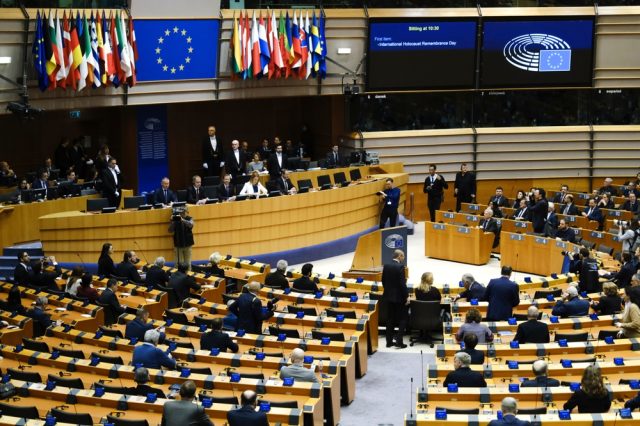
The European Parliament has given final approval to the European Union’s first legislation to combat gender-based violence. This is a historic step for the Member States to unite through the European institutions and jointly confront the sad phenomenon of violence against women, overcoming any kind of propaganda or ideological obstacles, in order to provide a clear and decisive response to all forms of violence against women, such as rape or stalking. Some important innovations have also been added that completely revolutionise the legal framework for the defence of victims of gender-based violence. The directive, which was adopted last week by 522 votes in favour, 27 against and 72 abstentions, will enter into force 20 days after its publication and EU member states will have three years to transpose and implement it.
What the law provides
As previously announced, the new legislation contains important innovations in relation to the definition of new offences: female genital mutilation, forced marriage, non-consensual exchange of intimate or manipulated material, online stalking, online harassment and incitement to hatred or violence online. In the area of criminal law, common rules for all Member States will then be established for the definition of offences and their respective sanctions. As far as forced marriage is concerned, it is foreseen that it will have extraterritorial application, i.e. that it will be punishable even if it takes place in a country other than the country of residence. In addition, other aggravating circumstances have been included, which carry harsher penalties, such as crimes committed against public figures or frail persons, against journalists or human rights defenders, or even crimes committed with the intent to discriminate against the victims on the basis of their gender, sexual orientation, ethnicity, religion, social background, political beliefs, or in order to restore the injured “honour”. Staying in the legal sphere, it is therefore necessary to ensure that victims have easier and faster access to justice in order to remove all obstacles that prevent women from coming forward: for example, by providing online means to file a complaint. Victims under the age of 18 will also have to be provided with professional assistance, and if the violence is perpetrated by a parent or legal guardian, states will have to ensure that the victim’s safety is protected. Helplines must be available at all times to provide support and information to victims, and states must provide free, operational anti-violence telephone numbers 24 hours a day, seven days a week.
The role of the European right
In the case of rape, Member States are expected to take preventive measures to raise awareness and combat stereotypes that lead to the commission of the crime. Initiatives such as awareness-raising campaigns could indeed educate about gender equality and respect. However, the issue of rape was not without controversy: some countries would have liked to include rape in the text, making it a “community” crime. However, these countries always remained in a minority position and had to give way to the will of the majority, which chose instead to follow the indications of the Council’s legal service, for which rape would instead be the exclusive competence of each Member State’s national legislation. In any case, even without the definition of rape, the new legislation adopted by the European Parliament is a very important step forward in the fight against domestic and gender-based violence. In particular, the contribution of the European right has made it possible to prevent the final text from being infiltrated by references to gender theories and anti-life tendencies that deal with ideological issues far removed from the core of the problem, such as abortion. In conclusion, despite some shortcomings, the final text sends out a strong signal of unity of purpose in tackling the scourge of violence against women.



 Subscribe
Subscribe